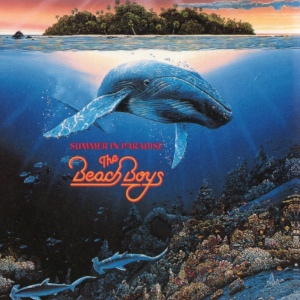
The Tragedy of King Lear, often shortened to King Lear, is a tragedy written by William Shakespeare. It is loosely based on the mythological Leir of Britain. King Lear, in preparation for his old age, divides his power and land between his daughters Goneril and Regan, who pay homage to gain favour, feigning love. The King's third daughter, Cordelia, is offered a third of his kingdom also, but refuses to be insincere in her praise and affection. She instead offers the respect of a daughter and is disowned by Lear who seeks flattery. Regan and Goneril subsequently break promises to host Lear and his entourage, so he opts to become homeless and destitute, and goes insane. The French King married to Cordelia then invades Britain to restore order and Lear's rule. In a subplot, Edmund, the illegitimate son of Gloucester, betrays his brother and father. Tragically, Lear, Cordelia and several other main characters die.

Anthony James "Lonnie" Donegan was a British skiffle singer, songwriter and musician, referred to as the "King of Skiffle", who influenced 1960s British pop and rock musicians. Born in Scotland and brought up in England, Donegan began his career in the British trad jazz revival but transitioned to skiffle in the mid-1950s, rising to prominence with a hit recording of the American folk song "Rock Island Line" which helped spur the broader UK skiffle movement.

"Lili Marleen" is a German love song that became popular during World War II throughout Europe and the Mediterranean among both Axis and Allied troops. Written in 1915 as a poem, the song was published in 1937 and was first recorded by Lale Andersen in 1939 as "Das Mädchen unter der Laterne". The song is also well known in a version performed by Marlene Dietrich.
"Gloria al Bravo Pueblo" is the national anthem of Venezuela. Its lyrics were written by physician and journalist Vicente Salias in 1810, set to music later composed by musician Juan José Landaeta. Owing to musical similarities with the French national anthem, beginning in 1840 "Gloria al Bravo Pueblo" was known as "La Marsellesa Venezolana". It was declared Venezuela's national anthem by decree of President Antonio Guzmán Blanco on May 25, 1881.

Anne Jennifer Dudley is an English composer, keyboardist, conductor and pop musician. She was the first BBC Concert Orchestra's Composer in Association in 2001. She has worked in the classical and pop genres, as a film composer, and was one of the core members of the synth-pop band Art of Noise. In 1998, Dudley won an Oscar for Best Original Musical or Comedy Score for The Full Monty. In addition to over twenty other film scores, in 2012 she served as music producer for the film version of Les Misérables, also acting as arranger and composing some new additional music.

Alastair Ian Stewart is a Scottish-born singer-songwriter and folk-rock musician who rose to prominence as part of the British folk revival in the 1960s and 1970s. He developed a unique style of combining folk-rock songs with tales of characters and events from history.

"Me and Bobby McGee" is a song written by American singer-songwriter Kris Kristofferson and originally performed by Roger Miller. Fred Foster shares the writing credit, as Kristofferson wrote the song based on a suggestion from Foster. A posthumously released version by Janis Joplin topped the Billboard Hot 100 in 1971, making the song the second posthumously released No. 1 single in U.S. chart history after "(Sittin' On) The Dock of the Bay" by Otis Redding. Gordon Lightfoot released a version that reached number 1 on the Canadian country charts in 1970. Jerry Lee Lewis released a version that was number 1 on the country charts in December 1971/January 1972 as the "B" side of "Would You Take Another Chance on Me". Billboard ranked Joplin's version as the No. 11 song for 1971.

Alan Price is an English musician who first found prominence as the original keyboardist of the English rock band the Animals. He left the band in 1965 to form the Alan Price Set; his hit singles with and without the group include "Simon Smith and the Amazing Dancing Bear", "The House That Jack Built", "Rosetta" and "Jarrow Song". Price is also known for work in film and television, taking occasional acting roles and composing the soundtrack of Lindsay Anderson's film O Lucky Man! (1973). He was inducted into the Rock and Roll Hall of Fame in 1994 as a member of the Animals.

Summer in Paradise is the twenty-seventh studio album by American rock band the Beach Boys, released on August 3, 1992, by Brother Records. Produced by Terry Melcher, it is the only album not to feature any new contributions from Brian Wilson, and has been regarded as the band's critical and commercial low point, failing to chart in either the US or UK and receiving almost unanimously negative reviews. In North America, it was the group's first album to be released only on CD and cassette, with a rare vinyl pressing released only in South Korea. The Beach Boys did not record another album of predominantly original material until That's Why God Made the Radio in 2012. Summer in Paradise was left out of Capitol's Beach Boys CD reissue campaign of 2000 to 2001, as well as all other reissues for most of the group's discography. Both it and its predecessor, Still Cruisin', are currently out of print. Summer in Paradise, along with Still Cruisin, were pulled from later re-releases due to poor public reception.
"The Skye Boat Song" is a late 19th-century Scottish song adaptation of a Gaelic song composed c.1782 by William Ross, entitled Cuachag nan Craobh. In the original song, the composer laments to a cuckoo that his unrequited love, Lady Marion Ross, is rejecting him. The 19th century English lyrics instead evoked the journey of Prince Charles Edward Stuart from Benbecula to the Isle of Skye as he evaded capture by government soldiers after his defeat at the Battle of Culloden in 1746.
"Babe I'm Gonna Leave You" is a folk song written by Anne Bredon in the late 1950s. Joan Baez, who learned the song from a student at Oberlin College, recorded the first published version for her 1962 album Joan Baez in Concert and a variety of musicians subsequently adapted it to a variety of styles, including the Association (1965), Quicksilver Messenger Service (1968), and Led Zeppelin (1969). Following the credit on Baez's 1962 release as "traditional, arranged by Baez", subsequent releases did not name Bredon until 1990 when, following Bredon's approach to Led Zeppelin, she received credit and royalties.

Hans Hugo Harold Faltermeyer is a German musician, composer and record producer.

"Daydream Believer" is a song composed by American songwriter John Stewart shortly before he left the Kingston Trio. It was recorded by the Monkees, with Davy Jones singing the lead. The single reached No. 1 on the U.S. Billboard Hot 100 chart in December 1967, remaining there for four weeks, and peaked at No. 5 on the UK Singles Chart. It was the Monkees' third and last No. 1 hit in the U.S.

"Don't Go Near the Water" is a song by American rock band the Beach Boys from their 1971 album Surf's Up. Written by Mike Love and Al Jardine, the song puts an ironic, ecological spin on the traditional Beach Boys beach- and surf- based songs: instead of enjoying surfing and other fun activities, this time the listener is advised to avoid the water for environmental reasons.

"Honkin' Down the Highway" is a song by American rock band the Beach Boys from their 1977 album The Beach Boys Love You. It was written by Brian Wilson and sung by Al Jardine. The lyrics describe a man driving to a woman, at her father's behest, for an engagement that the narrator states will conclude with himself "Takin' one little inch at a time, now / 'Til we're feelin' fine, now".

The religious views of William Shakespeare are the subject of an ongoing scholarly debate dating back more than 150 years. The general assumption about William Shakespeare's religious affiliation is that he was a conforming member of the established Church of England. However, many scholars have speculated about his personal religious beliefs, based on analysis of the historical record and of his published work, with claims that Shakespeare's family may have had Catholic sympathies and that he himself was a secret Catholic.
"Down by Blackwaterside" is a traditional folk song, provenance and author unknown, although it is likely to have originated near the River Blackwater, Northern Ireland. Peter Kennedy suggests that the lyrics originated in England, later picking up the best known tune in Ireland. Versions with a different tune have been collected in the English West Country. There is a Blackwater River in South East England.

Foss, formally named Aderphos, was the pet cat of Edward Lear, the 19th-century author, artist, illustrator and poet. A "stumpy-tailed," "portly," and "unattractive" tabby cat, he was a favourite of Lear's and played an important role as a companion in the poet's lonely later years. Foss is mentioned frequently in Lear's correspondence and appears in his illustrations and at least one poem. Foss is said to have been the inspiration for the pussycat in Lear's illustrations for his poem "The Owl and the Pussycat". The funeral that Lear provided for Foss, which included an epigraphed headstone, is said to have been more elaborate than Lear's own.














